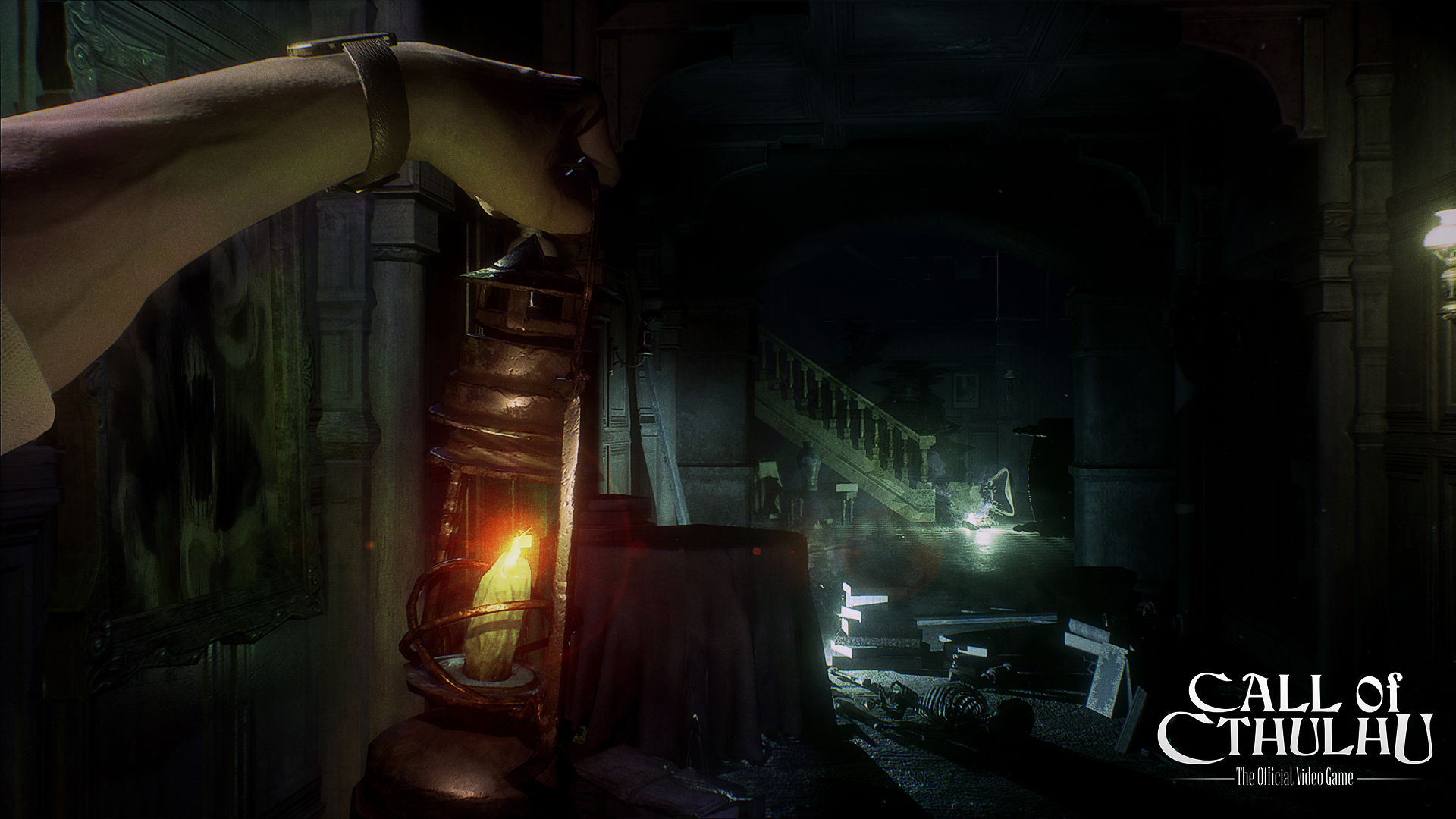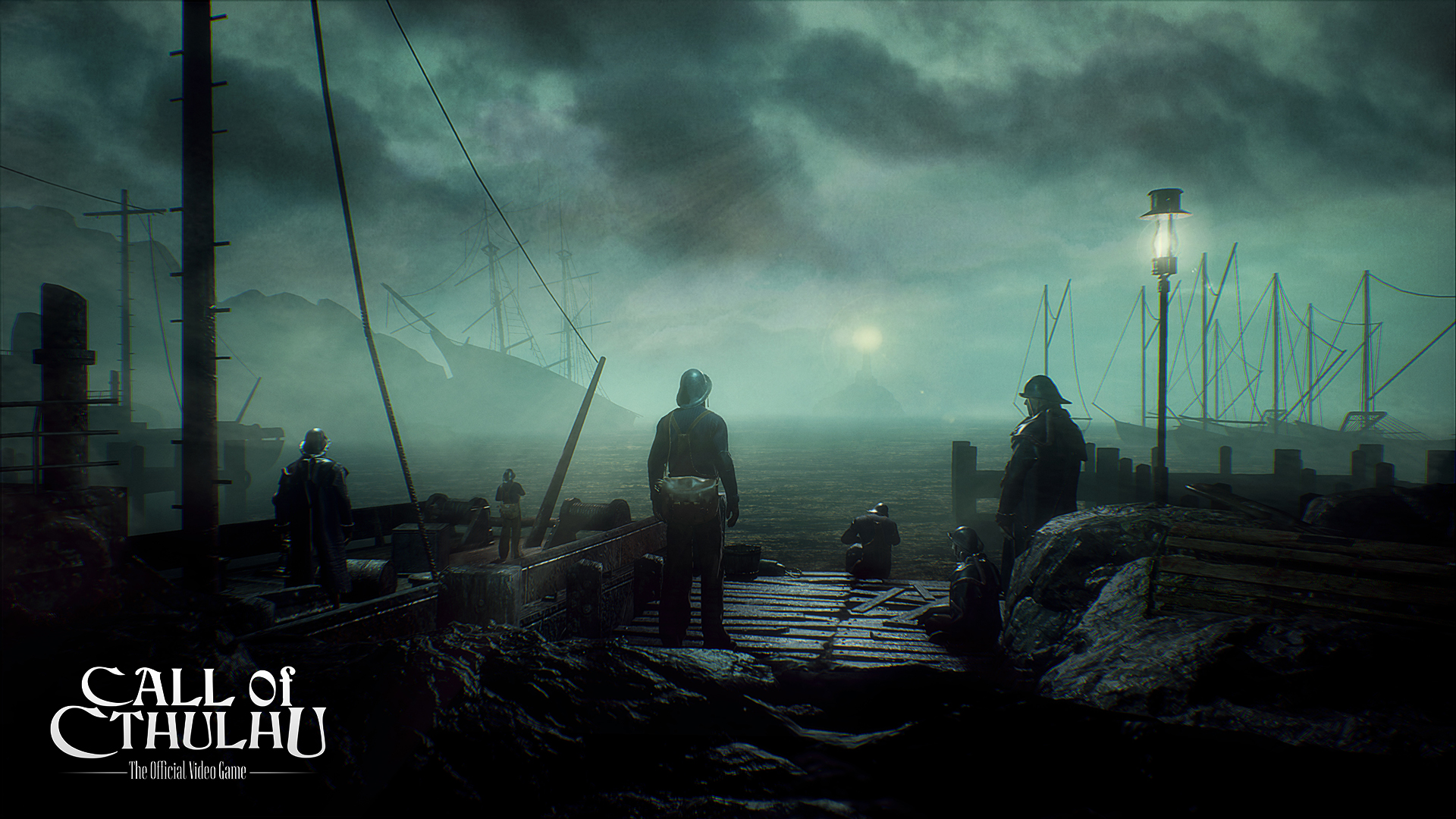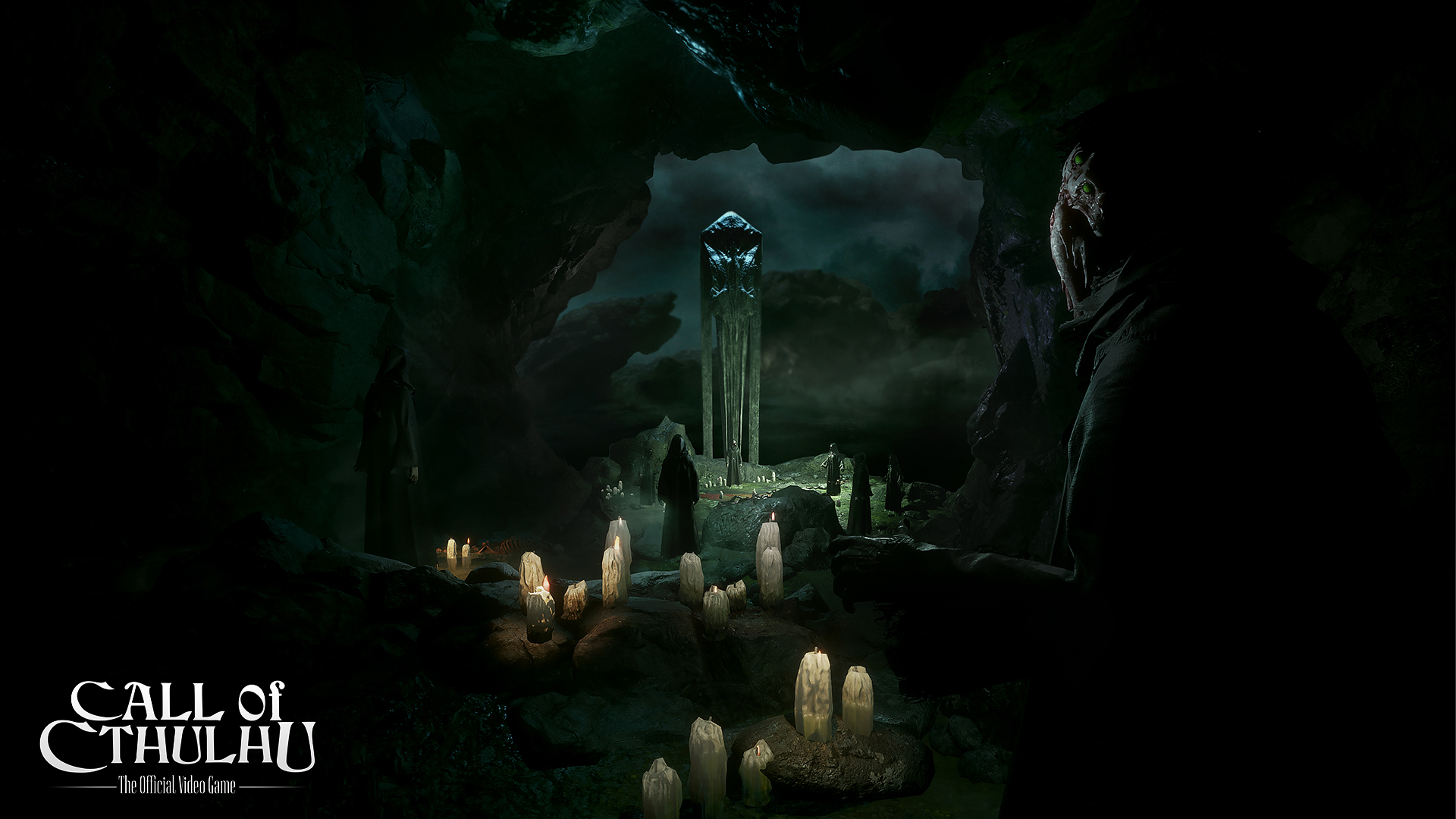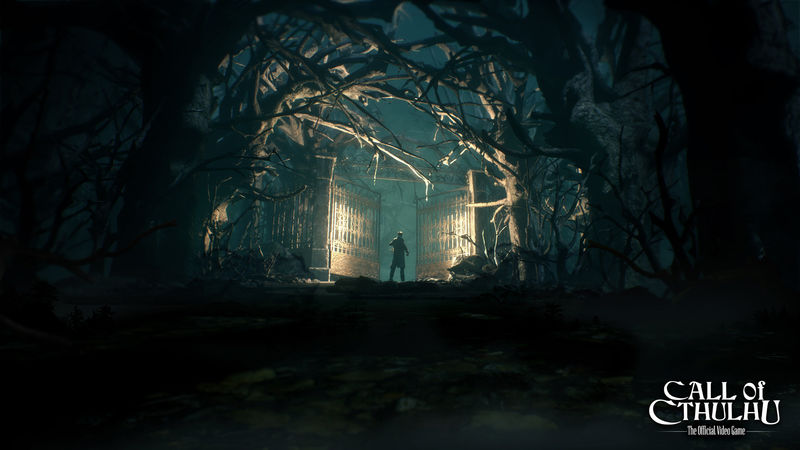
There’s something about Cthulhu, which sounds like a name for a bad sitcom (or a great one that goes wrong). But whether it’s 2005’s Call of Cthulhu: Dark Corners of the Earth, the entity’s influence on many facets of culture or Lovecraftian horror in general, The Great Old One has always had this intangible charm. He serves as a gateway to cosmic horror as a whole. Plus, the mythos behind Cthulhu – of an overwhelming part-man, part-dragon, part-octopus entity who lays dreaming, waiting to inflict his evil upon the world – has endured the test of time.
The original “The Call of Cthulhu” short story is interesting because of how it plays out. Lovecraft’s brand of horror wasn’t about cheap thrills or jump scares. It was about the horrifying unknown; humans dealing with things they can’t possibly understand and their ultimate irrelevance in the grand scheme of things. More than anything else, it laid the groundwork for the Cthulhu Mythos, expanding upon these horrifying entities and the consequences of their actions.
"Whether you’re going into this expecting a suspenseful horror title or a complex detective story, Call of Cthulhu does the bare minimum to captivate your interest and not much more."
In some ways, Cyanide Studio’s Call of Cthulhu seems like its trying to lay the groundwork for its interpretation of Cthulhu’s awakening (while also adapting the 1981 RPG by Chaosium). In other ways, it’s a story with choices that prioritize mystery and “investigating” matters. Oh, and sometimes there are stealth segments, feeling arbitrary at first but slotting decently when the situation calls for it. It’s a mix of numerous elements that don’t seemingly clash together but struggle to muster much interest as a whole. Whether you’re going into this expecting a suspenseful horror title or a complex detective story, Call of Cthulhu does the bare minimum to captivate your interest and not much more.
As Edward Pierce, a surviving World War 1 soldier turned alcoholic private investigator, your job is to investigate the death of Sarah Hawkins. Though her family seemingly died in a house fire on Darkwater Island, just off the coast of Boston (somewhere between Point Lookout and Far Harbor), rumours abound of her being the cause of their death. The only real leads are a few notes and a twisted painting sent from the mysterious Warehouse 36 on Darkwater. Thus does Pierce set out to solve this mystery and maybe wonder why these weird cultists and booming voices trouble him in his nightmares.
Surely it’s nothing serious.
The opening sequence – wherein players become acquainted with Pierce, allotting different skill points to categories like Occultist, Medicine, Strength, Investigation, Psychology, Eloquence and so on – showcases the overall odd writing of the game. The pivotal conversation where Pierce accepts the case plays out much like a typical video game conversation wherein Sarah Hawkins is mentioned several times as is the mission to investigate her death.
"Some discussions provide different choices based on your stats but you’re not going to have the entire town suddenly turning hostile if you say something stupid."
As time goes on, you’ll discover other odd bits like dealing with the threatening Silas while Officer Bradley waits off to the side, waiting for your prompt. Yes, this is all probably nitpicking but it was weird. These instances manifest ever so occasionally and while they aren’t outright bad, they can come across as unnatural. It thankfully doesn’t weigh on the game as a whole.
The voice-acting is good for the most part even if it’s nothing spectacular. Each character, from the hard-boiled Pierce to the enigmatic Cat, makes an impression. Will you necessarily remember them once the experience is done? Probably not but whether it’s Bradley’s innocuous bumbling, Cat’s “sometimes kind, sometimes not” behaviour or even Pierce’s charisma, the writing and voice acting can be fairly on point during conversations. Some discussions provide different choices based on your stats but you’re not going to have the entire town suddenly turning hostile if you say something stupid. Specific choices will “affect your destiny” but they didn’t seem to make a huge difference on the minute-to-minute gameplay.
Where the minute-to-minute differences can be seen are in the semi-free-form sections. Call of Cthulhu divides its time between sections, where you’re free to discover numerous different ways to complete an objective, and investigations, where you piece together clues from a crime scene to gather insight. Want to get into Warehouse 36? Investigate a nearby sewer entry, pilfer some parts together and make sure the Strength stat favours you when lifting the sewer grate. Or you could get tossed out by Cat and attempt to smooth-talk her thugs later based on clues gathered. Or you could just walk right up to Cat and ask to be let in but only if you agree to “owe” her.
"Pacing-wise, it feels like Call of Cthulhu is shuffling from one chapter to the next. If you’re expecting a scare per minute, like Outlast, then this might not be the experience for you."
Similarly, an escape mission later on tasks you with creating a distraction while offering numerous different ways to do so. Gather pills for an inmate so he’ll make a ruckus, overload one of the key machines, whatever it takes. These segments can be pretty good since they challenge you to make the best use of stat allotments, whether it’s garnering information through eloquent speech or forcing things to work through sheer strength and/or lock picking skill. They’re not overtly difficult or mind-bending, much less equivalent to what immersive sims can offer, but serve their purpose well enough.
The investigations and “reconstructions” leave a bit to be desired though. Often intertwining, you’ll enter a crime scene and attempt to piece things together via pseudo-flashbacks. Think along the lines of Batman: Arkham Knight’s crime scene investigations. In Call of Cthulhu though, it’s pretty much just walking around, clicking on certain things and then exiting the reconstruction. I can’t even credit them for having much narrative weight since they can be mostly static. Seeing Thomas Hawkins lashing out at dinner or engaging in a secret meeting would have felt more impactful if they were more dynamic. Perhaps these interactions would have also been weightier rather than simple story bits that exist to plug holes in the mystery.
On some occasions, I encountered issues with these reconstructions. Exiting the very first one caused the game to bug out, preventing the selection of dialogue choices when talking to Bradley. Exiting the reconstruction of the aforementioned secret meeting was also impossible the first time but reloading it and choosing a different sequence of things to click on made it play normally. Being unable to re-enter a reconstruction after exiting it is also kind of weird.
Pacing-wise, it feels like Call of Cthulhu is shuffling from one chapter to the next. If you’re expecting a scare per minute, like Outlast, then this might not be the experience for you. If a mounting atmospheric horror akin to Amnesia or even Call of Cthulhu: Dark Corners of the Earth is what you’re after, then you might also struggle to sustain interest here.
"Though certain aspects can be enjoyable in their own right, I often found myself waiting for something interesting to happen."
The mystery itself is the key appeal, as you learn more about the Hawkins family and immerse yourself in the dingy caves and shady asylums of the island. There’s some kind of noir appeal to it all, as the trench-coat wearing Pierce investigates matters, trusty lighter barely illuminating the environment. Elements of horror can definitely be found but for all intents and purposes, you’ll be doing a lot of investigating and conversing with different NPCs. Mind you, the revelations aren’t exactly crazy and the overall story-telling isn’t helped by the non-in-game cut-scenes, which seem to be of lower quality than the actual gameplay graphics.
Also, while the aesthetics for Call of Cthulhu can be pretty cool, some graphical aspects stick out like so many sore thumbs. Some facial textures feel bland at times. Animations can be stilted and somewhat awkward for NPCs. I didn’t come across any glitches or performance issues, especially when running on Epic settings, so that’s a positive. Call of Cthulhu is just such an odd game. The overall package aren’t offensively bad nor is it overwhelmingly amazing (or even really good). The game just doesn’t seem to really run with the massive potential of its premise and mythos. Instead, it’s a steady jog, one that’s serviceable and workman-like all the way to the finish line but imminently forgettable when the next big video game marathon rolls around.
Though certain aspects can be enjoyable in their own right, I often found myself waiting for something interesting to happen. Your mileage may differ though and I can appreciate developer Cyanide for trying to create a compelling mystery with Lovecraft’s short story as the base. However, in terms of horror, investigating, puzzle solving, decision-making and immersive sim mechanics, Call of Cthulhu is far from the most fitting tribute to The Great Old One.
This game was reviewed on PC.
Decent aesthetic and attention to detail. Voice acting is pretty fitting and the overall characterization is handled well. Sections with multiple routes to objective, reinforcing stat checks, are interesting. Even the overall mystery is interesting at the outset.
Some awkward animations and bland face textures. Investigations, specifically reconstructions, can feel pretty bland and simplistic. Pacing struggles to really engage the player. Horror enthusiasts may find the experience wanting. Overall story-telling and writing feels serviceable but not exceptionally captivating.




















